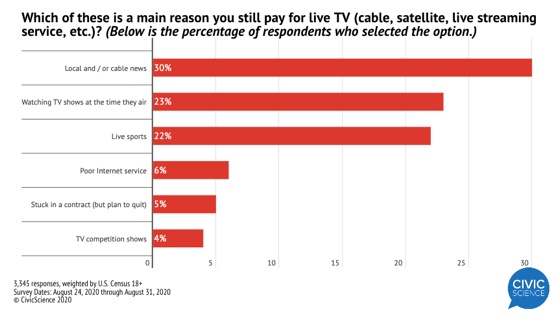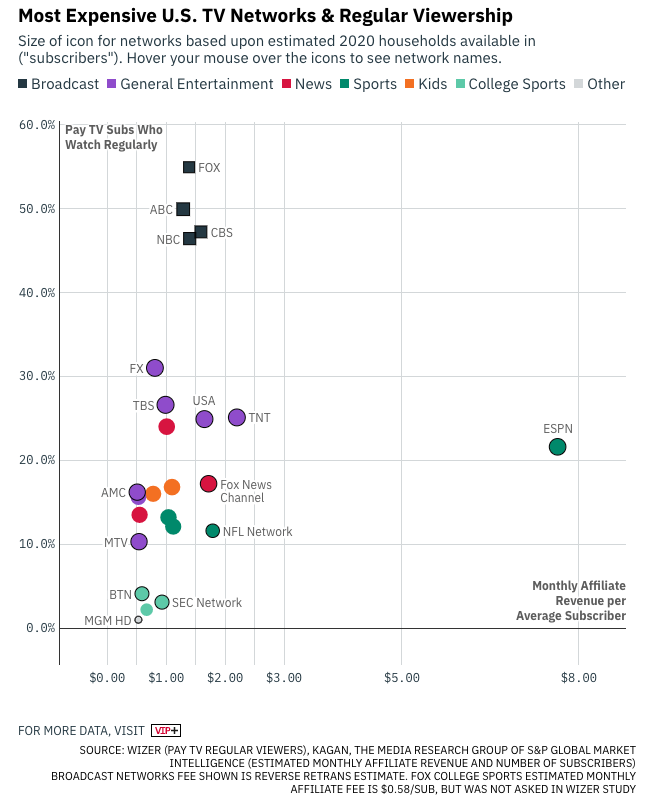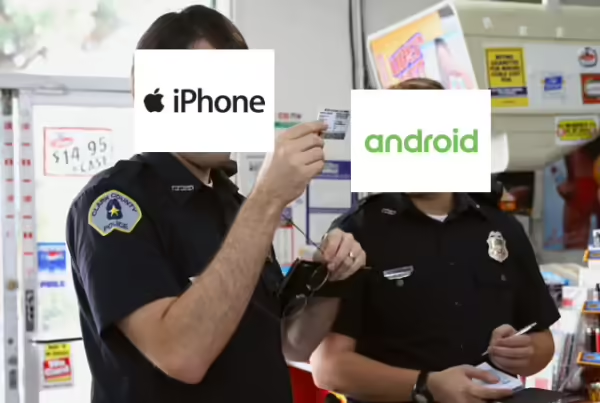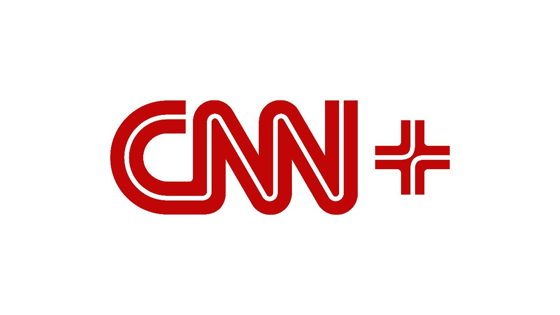
Big news: CNN launched its direct-to-consumer (DTC) streaming service (CNN+) on Tuesday.
Flashback: Breaking News: CNN+ Streaming Soon
Why this matters #1: CNN currently generates $1B in profit for WarnerMedia. Launching a DTC offering without disrupting the traditional pay-TV gravy train could get tricky.
Why this matters #2: News accounted for 20% of all TV viewing in 2020 and is a primary reason why consumers subscribe to pay-TV.
The main reason someone pays for live TV, according to Civic Science:
1) News – 30%
2) Live content – 23%
3) Sports – 22%
Mr. Screen’s Crystal Ball: Cable news is undervalued in the bundle, making it an appealing a-la-carte option.
Key details for CNN+:
1) $350M budget in 2022
2) ≈ 400 employees
3) 1K+ hours of on-demand content
4) 8-12 live daily shows
Big question #1: What will CNN+ cost?
Monthly pricing tiers for CNN+:
1) Ad-free – $6
2) Limited offer – $3 for life (50% discount)
3) Ad-free – TBD
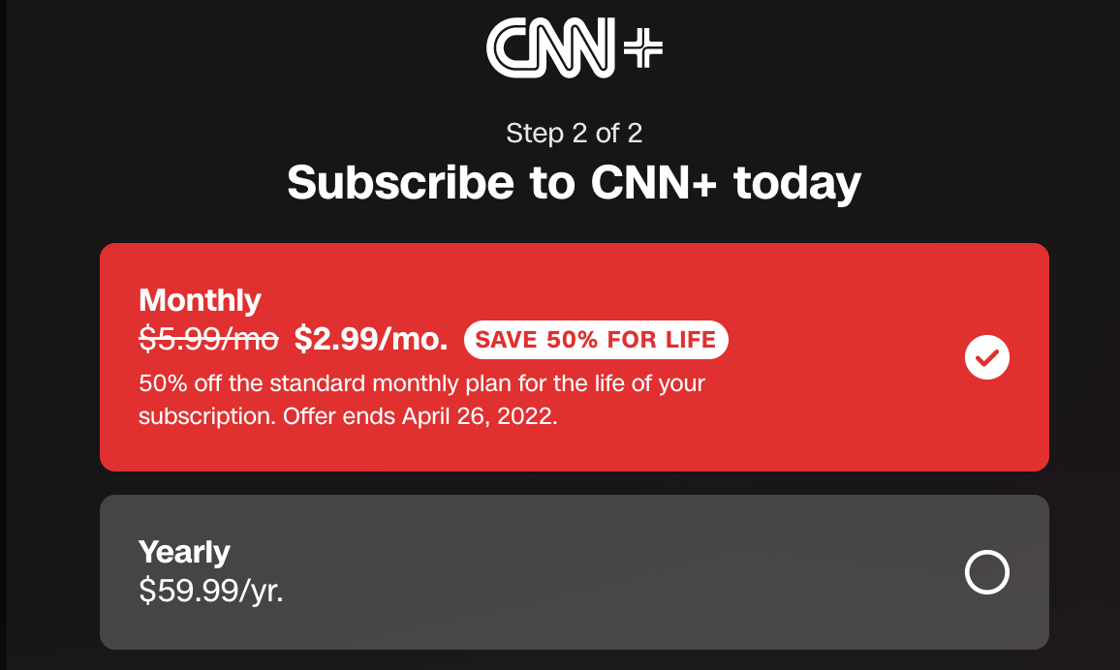
Big question #2: Who is the target audience for CNN+?
Quick answer: Generation Z and Millennials are ≈ 3X more likely to get their news from social media than from network/cable TV news.
Plus/minus for news consumption on network/cable TV vs. social media according to Deloitte:
1) Boomers – + 50%
2) Generation X – +4%
3) Millennials – -25%
4) Generation Z – -38%

Big question #3: What does the video news business look like in 2030?
Quick answer: We believe the video news business will shift in some combination of the following four scenarios.
Scenario #1: Video news is consumed primarily live AND through a bundle. New players (Newsmax, etc.) may emerge to fill niche gaps, but live sports and news create enough demand that new bundles (Apple, HBO Max, Xfinity Flex, etc.) provide an attractive offering. The business model is a mix of subscription fees and advertising.
Scenario #2: Video news is consumed primarily live through a direct-to-consumer (DTC) subscription (Fox Nation, CNN+, etc.). The business model is a mix of subscription fees and advertising.
Scenario #3: Video news is consumed primarily live BUT WITHOUT a paid subscription (Tubi, Newsy, Cheddar, etc.). The business model is primarily advertising.
Scenario #4: Video news is consumed on-demand primarily and distributed through social networks, apps, and email newsletters. A great example is the amazing work from the team at The Recount. The business model is primarily advertising.
Cable news networks by prime-time audience (YoY growth) according to Nielsen:
1) Fox News – 2.3M (↓ 36%)
2) MSNBC – 919K (↓ 58%)
3) CNN – 787K (↓ 56%)
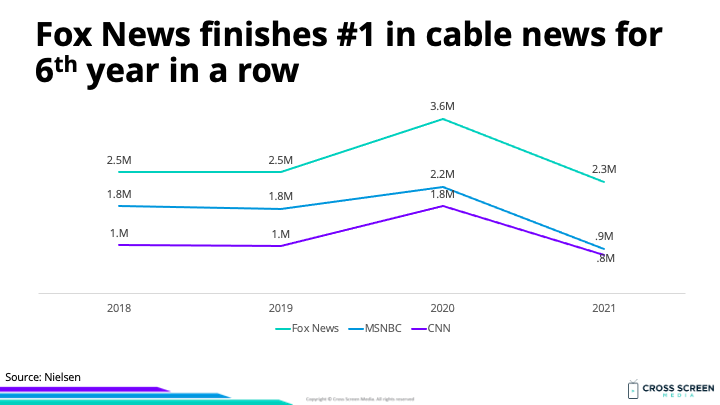
1) Do younger generations shy away from network/cable TV news because of format (short vs. long) and/or delivery (streaming vs. linear)?
2) If I can buy CNN and my local sports RSN (Bally Sports, etc.) through streaming, will that lead to accelerated cord cutting?

